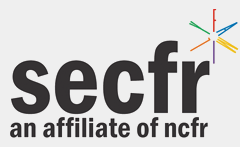Title
Resilience and Coping in Survivors of Unwanted Sexual Contact: Do Gender and Service Utilization Make A Difference?
Proposal Focus
Research
Presentation Type
Presentation
Abstract
This presentation discusses the impact of unwanted sexual contact and survivors in the collegiate setting from the family studies perspective. Specifically, this research examines the association between gender and service utilization on measures of resilience and coping in survivors of unwanted sexual contact at the University of North Alabama. The presenter identifies the disparity found between resiliency and coping when students utilized victim support services (i.e., formal reporting procedures, counseling services and/or a victim support advocate) following an incident of unwanted sexual contact. Because gender was a significant predictor of resilience, coping and service utilization, differences in coping subscale measures are identified. The university’s Campus Climate Survey data is briefly examined along with the implications of findings and recommendations for changes in family studies professionals and family advocate roles on college campuses.
Keywords
Resilience, coping, unwanted sexual contact, student support services, colleges/universities
Location
Cornerstone Ballroom Side B
Start Date
12-4-2019 11:00 AM
End Date
12-4-2019 12:00 PM
Resilience and Coping in Survivors of Unwanted Sexual Contact: Do Gender and Service Utilization Make A Difference?
Cornerstone Ballroom Side B
This presentation discusses the impact of unwanted sexual contact and survivors in the collegiate setting from the family studies perspective. Specifically, this research examines the association between gender and service utilization on measures of resilience and coping in survivors of unwanted sexual contact at the University of North Alabama. The presenter identifies the disparity found between resiliency and coping when students utilized victim support services (i.e., formal reporting procedures, counseling services and/or a victim support advocate) following an incident of unwanted sexual contact. Because gender was a significant predictor of resilience, coping and service utilization, differences in coping subscale measures are identified. The university’s Campus Climate Survey data is briefly examined along with the implications of findings and recommendations for changes in family studies professionals and family advocate roles on college campuses.

